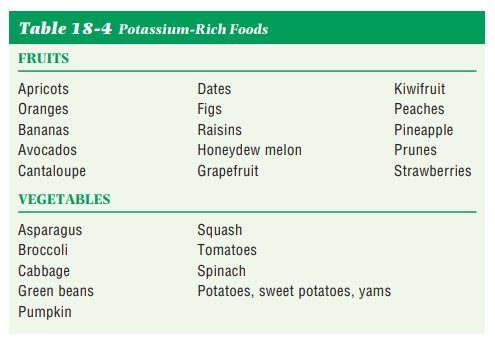Chapter: Nutrition and Diet Therapy: Diet and Cardiovascular Disease
Congestive Heart Failure
CONGESTIVE HEART FAILURE
Congestive heart failure (CHF) is an example of
decompensation, or severeheart disease. Heart failure is caused by conditions
that damage the heart muscle, including coronary
artery disease (CAD), heart attack, cardio-myopathy,
valve disease, heart defects present at birth, diabetes
mellitus,and chronic renal disease. Heart failure can also occur if several
diseases or conditions are present. In this situation, when damage is extreme
and the heart cannot provide adequate circulation, the amount of oxygen taken
in is insufficient for body needs. Shortness of breath is common, and chest
pain can occur on exertion.
Because of the reduced
circulation, tissues retain fluid that would normally be carried off by the
blood. Sodium builds up, and more fluid is retained, resulting in edema. In an
attempt to compensate for this pumping deficit, the heart beats faster and
enlarges. This adds to the heart’s burden. In advanced cases when edema affects
the lungs, death can occur.
With the inadequate
circulation, body tissues do not receive sufficient amounts of nutrients. This
insufficiency can cause malnutrition and under-weight, although the edema can
mask these problems. In some cases a fluid restriction may be ordered.
Diuretics to aid in the
excretion of water and sodium and a sodium-restricted diet are typically
prescribed. Because diuretics can cause an excessive loss of potassium, the
client’s blood potassium should be carefully monitored to prevent hypokalemia,
which can upset the heartbeat. Fruits, especially oranges, bananas, and prunes,
can be useful in such a situation because they are excellent sources of
potassium and contain only negligible amounts of sodium (Table 18-4). When
necessary, the physician will prescribe supplemen-tary potassium.

Related Topics